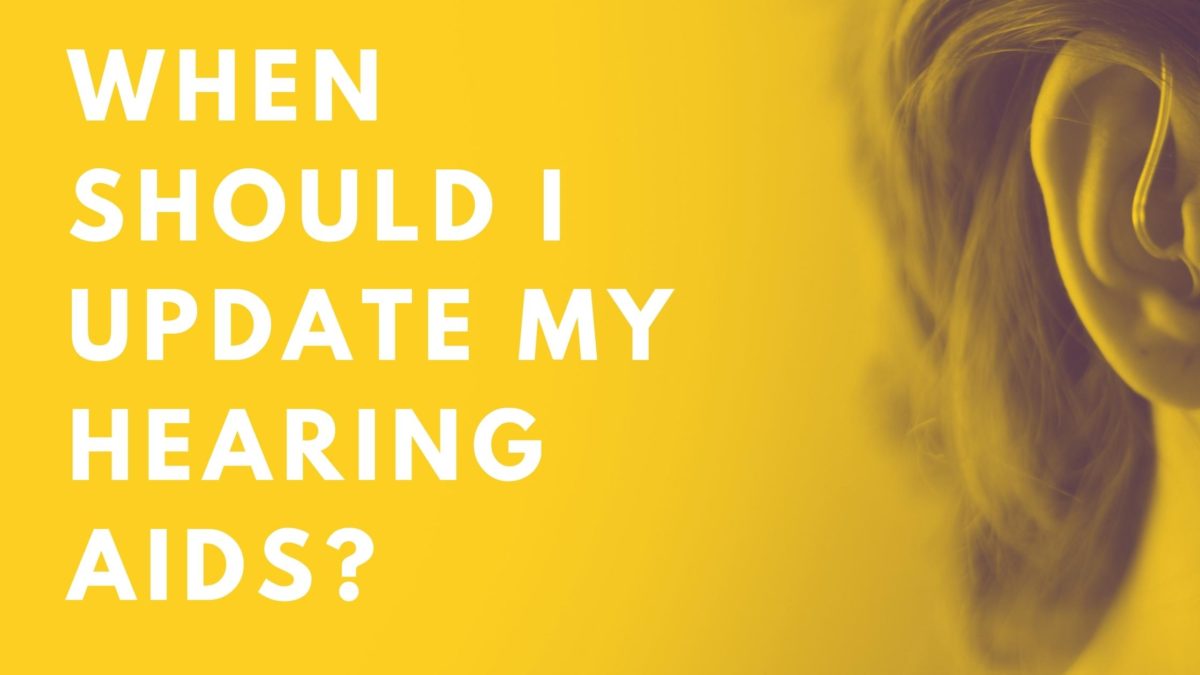The average lifespan of hearing aids is between three and seven years. This is, of course, an average, and we can expect outliers to happen. There are so many influencing factors that make up the equation of when your hearing aids will need to be replaced. How often were they worn? What moisture levels were they exposed to? Were daily cleaning and regular maintenance a priority or did this sometimes fall to the wayside?
Even with the most exquisite attention to cleaning and maintenance, there are reasons to invest in a new pair of hearing aids. Here are some of the most common motivators for hearing aid wearers to replace their current models.
Your hearing aids stop working
You absolutely will need to replace your hearing aids if they stop working. Sometimes, this is simply a maintenance issue or a small repair is necessary. Remember that hearing aids require these small repairs from time to time as they’re tiny machines exposed to earwax and moisture daily.
Ideally, you’ve taken them to your audiologist and despite efforts, they cannot be repaired. Now that hearing aids have become an essential part of your life, aiding in connection with others and daily conversations, they’re integral to your hearing experience. But, if they no longer work or do not work reliably, it’s time to invest in a new pair.
Check the warranty that came with the hearing aids at purchase to see if you are within the time limit for upgrades or replacements.
You’re an early adopter
Some people thrive on change and new things. For that subset of folks, updating their hearing aids is a less precise science. They are excited by learning new technologies and are endlessly fascinated by the latest updates. If that sounds like you, then the right time to replace your hearing aids is when you can’t stop thinking about the bells and whistles of the newest models out there.
There are changes in your level of hearing loss
Perhaps your hearing aids are functioning the same as they always have, but it is your own levels of hearing that have changed. This is completely normal, as hearing loss that comes later in life is often progressive, meaning that it gets worse over time. Hearing aids may help to slow that process, but they won’t stop it in its tracks.
Your hearing aid might have been suitable for your previous level of hearing loss, but shifting into a new category means that you’re better served with a more powerful model. Luckily, there are myriad choices of styles and capabilities for all levels of hearing loss.
Changes in your habits and environments
Maybe you’ve taken up kayaking since you first began wearing hearing aids. The model chosen by the non-kayaking you just isn’t cutting it for this person who now spends hours at a time on the water.
It might be that you’ve taken a new profession that requires a lot of time spent on the phone. Perhaps there is a hearing aid more compatible with your new work obligations.
Changes in your home environment can necessitate changes with your hearing aids. If you were previously fitted for hearing aids while living alone, and now your grandchildren have moved in with you, a different choice might make living in a noisier group environment more comfortable.
Significant changes in weight
If you have been fitted for custom hearing aids and have since undergone significant weight changes, it might be time for new hearing aids. It sounds surprising, but a dramatic weight gain or loss can change the very structure of your ear. Rather than deal with the uncomfortable and sub-optimum performance of ill-fitting hearing aids, seek out a new custom fitting.
The bottom line
There may have been a number of years that you chose to just live with your hearing loss before investing in hearing aids. Don’t you wish you had chosen to intervene in your hearing loss a little sooner? Take the same approach to invest in new hearing aids. If they are not optimally working for you, take the steps to repair or replace them. It is simply not worth it to suffer from a less than exceptional hearing experience.

